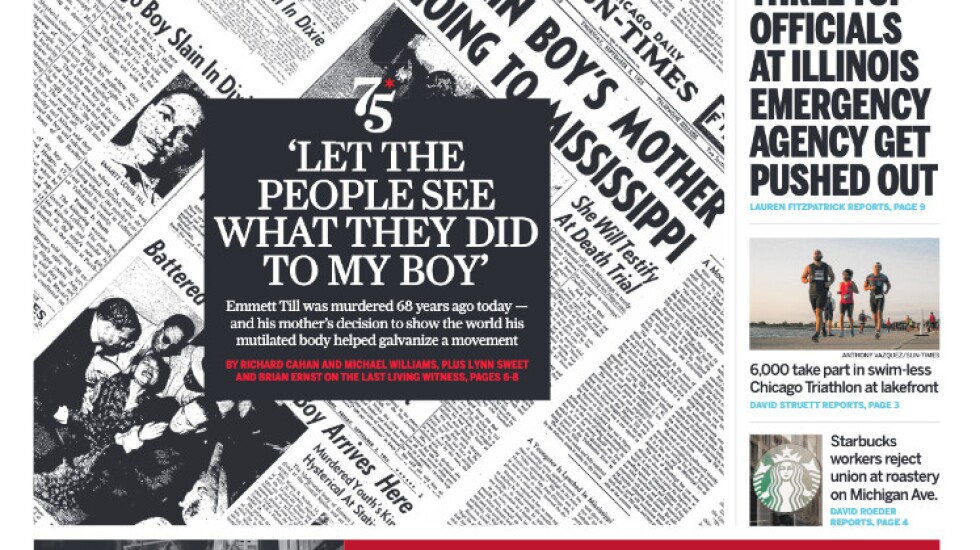
In a recent opinion piece written by Chicago resident Essence Jefferson, she states Chicago Police officers pulled her over for no reason, yet the officer told her she made a right turn when she wasn’t supposed to (“Unnecessary traffic stops by Chicago police impact daily lives of Black and Brown drivers” — Sept. 5). Ms. Jefferson said there wasn’t a sign saying she couldn’t turn.
She also alleges that CPD has a policy for targeting Black and Brown drivers. She says CPD stops cars for minor equipment and registration violations in Black and Brown neighborhoods. Equipment and registration violations are cause to stop a car regardless of the neighborhood.
SEND LETTERS TO: letters@suntimes.com. We want to hear from our readers. To be considered for publication, letters must include your full name, your neighborhood or hometown and a phone number for verification purposes. Letters should be a maximum of approximately 375 words.
Ms. Jefferson is part of a lawsuit against CPD for an alleged program she says CPD has: a “mass traffic stop program.” The essay says Ms. Jefferson has been stopped by CPD more than 14 times in recent years. Are we to believe that she was stopped 14 times strictly because of her race and not because she had an equipment violation or committed a traffic violation? Her story is one-sided and convenient. Or, am I just being naive?
Richard Barber, Mount Greenwood
Show the carnage of gun violence
The front page of the Aug. 28 newspaper was an acknowledgment of what Emmett Till’s mother did in showing her son’s mutilated body in his casket. It was a catalyst that sparked a civil rights onslaught not only for Chicago and our area but nationwide. Witness the national historical landmarks that President Joe Biden recently established in their names here and in Mississippi.

So why can’t a similar approach be used to foster effective gun control legislation — showing what weapons of war do to Americans of all ages? Show them lying in pools of their blood despite how disgusting this may sound and look.
News outlets show such carnage in war zones: in Ukraine, Vietnam, Afghanistan and certainly the Holocaust. Why not with victims of guns that should not be on our streets or in possession by anyone who wants to murder innocent citizens, as occurred in a hate crime in Jacksonville, Florida? After all, words from analysts, pundits and news anchors mean nothing anymore to advance legislation for meaningful gun reform for the nation.
Miles J. Zaremski, Highland Park
Pritzker’s moratorium veto was right move
Gov. J.B. Pritzker’s veto regarding the nuclear moratorium was the right thing to do. Nuclear power is too dangerous, too expensive and totally unnecessary for our energy needs. Has everybody forgotten about Fukishima, Chernobyl, and Three Mile Island? If you go to the website of The Solutions Project you can learn that we have the plans, technology and natural resources to transition to renewable energy now. Renewable energy is cheaper to make than nuclear power.
It can be constructed and put in place much faster than any nuclear power plant, no matter the size. I have never heard of an accident at a manufacturing plant, solar farm, wind farm, a mine extracting rare minerals that make solar panels, or wind turbines contaminating an area the size of Pennsylvania for hundreds of thousands of years.
We have the means to transition to renewable energy technology and resources now. All we lack is the political will to do so because the dying nuclear, fossil fuel and for-profit electric utilities, through their political campaign donations to elected leaders of both parties, have bought their votes — and in this case, in the Illinois Legislature, to remove the moratorium on the construction of nuclear energy plants.
Paul Roden, Yardley, Pennsylvania







